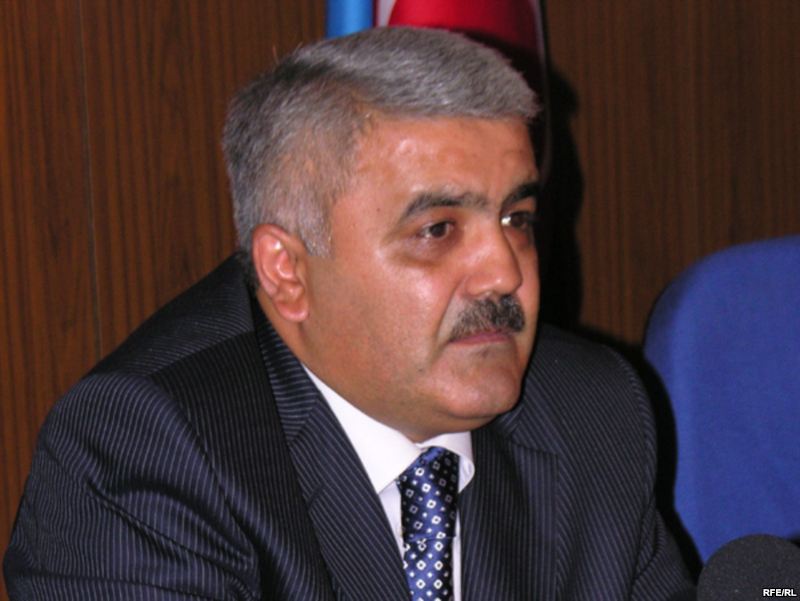
Direct Road to Europe: Azerbaijan’s Trans-Anatolia Gas Pipeline
Publication: Eurasia Daily Monitor Volume: 9 Issue: 2
By:

On December 26 in Ankara, the Energy Ministers of Azerbaijan and Turkey signed a memorandum of understanding (MOU) to build a Trans-Anatolia Gas Pipeline to Europe. Crucially, Azerbaijan would be the main owner of this line in Turkish territory. Azerbaijan regards this gas project’s significance as equal to that of the Baku-Tbilisi-Ceyhan oil pipeline for Azerbaijan’s national development. The Europe-bound gas pipeline, if built, would mark Azerbaijan’s emergence as a significant gas exporter in its own right, adding to the country’s oil-exporter role.
The trans-Anatolia pipeline would mainly carry Azerbaijani gas, starting with the second phase of production at the Shah Deniz field, which is now scheduled to produce the first commercial gas in 2017. Beyond that, Azerbaijan expects to add significant gas volumes from other fields for export to Europe. The Trans-Anatolia pipeline would run from the Georgia-Turkey border to the Turkey-Bulgaria border, to connect with another pipeline into European Union territory.
That continuation line is not yet specified. However, Baku and Ankara consider a reconfigured and drastically shortened Nabucco, from Bulgaria via Romania and Hungary to Austria, as an option for carrying Azerbaijani gas into Europe. If implemented, the trans-Anatolia pipeline would replace the Nabucco project on Turkey’s territory; but it would still require the continuation line along Nabucco’s original route to central Europe.
Under the MOU, Azerbaijan and Turkey are the founders of the Trans-Anatolia Gas Pipeline consortium (not to be confused with the trans-Anatolia oil pipeline project Samsun-Ceyhan). Azerbaijan’s State Oil Company will hold 80 percent of the ownership shares, Turkey’s state pipeline company Batas 10 percent, and Turkish Petroleum (TPAO) another 10 percent in the trans-Anatolia gas pipeline. Third-party gas-producing companies (apparently meaning Shah Deniz consortium partners) may be allowed to join the consortium later, as minority shareholders. The partners will finance the pipeline’s construction proportionately to their respective ownership snares. Thus, Azerbaijan will be the pipeline’s main owner, controlling the allocation of transport capacities and other key decisions.
The transit line’s capacity is projected at 16 billion cubic meters (bcm) annually in the first stage, to be increased to 24 bcm in the second stage. Of those amounts, Turkey will be entitled to buy 6 bcm annually from Shah Deniz, Phase Two of production (from 2017 onward), in accordance with the long-term agreement between Turkey and Azerbaijan. Under the MOU just signed, Azerbaijan and Turkey will complete the feasibility study for the trans-Anatolia pipeline in early 2012, start construction work in the same year, and complete the line in 2017. This date is correlated with the Shah Deniz production coming on stream in that year and reaching 16 bcm annually post-2017. Construction costs for the trans-Anatolia pipeline are estimated at $5 billion to $6 billion (Trend, News.az, Anatolia News Agency, December 26-28; Zaman, December 27; Hurriyet Daily News & Economic Review, December 30; Journal of Turkish Weekly, December 27, 31).
This project was foreshadowed in the Azerbaijan-Turkey agreements, signed on October 25, 2011, in Izmir in the presence of President Ilham Aliyev and Prime Minister Recep Tayyip Erdogan. Within that package, the overall inter-governmental agreement and the framework agreement on gas transit envisaged two possible options for the transit of Azerbaijani gas westward via Turkey. One option was to use Turkey’s Botas-operated pipeline system, conditional on certain upgrading for this purpose. The other option was identified as a trans-Anatolian gas pipeline, to be jointly built across Turkey. Already at the signing event for these agreements, the Azerbaijani side made clear its preference for building a trans-Anatolia pipeline from scratch.
According to Azerbaijan’s State Oil Company President, Rovnag Abdullayev, the existing Turkish pipelines could accommodate a maximum of 10 bcm of Azerbaijani gas annually en route to Europe, provided that Botas carries out the necessary upgrading, “which raises some questions.” Beyond that volume, however, a new pipeline is required, with its capacity dedicated primarily to Azerbaijani gas, for transportation across Turkey “without problems” (www.1news.az, December 28).
Azerbaijan expects gas production to reach some 50 bcm of gas annually by 2025 (double the present annual production). Apart from Shah Deniz, that increase is anticipated to come from the Apsheron, Umid, Babek, deep-water ACG, and possibly Shafak-Asiman projects, all involving international companies in partnerships with Azerbaijan. The lion’s share of that production will be available for export via Georgia and Turkey to Europe. A dedicated pipeline, or one under Azerbaijan’s control in Turkey, is the optimal solution from Azerbaijan’s standpoint. The Nabucco consortium had never resolved the issue of accepting Azerbaijan’s State Oil Company as a partner in that pipeline project.
From Azerbaijan’s perspective, the advantages of the trans-Anatolian pipeline project are self-evident. It would enable Azerbaijan, for the first time, to sell its own gas through its own pipeline, at Turkey’s western border with the EU, directly to European customers. Using an Azerbaijani-owned pipeline without having to pay for the transit service would make Azerbaijan’s gas price-competitive in Europe. Moreover, Azerbaijan would collect transit fees from other gas producers and shippers that would use this pipeline’s spare capacities, which Azerbaijan would allocate. Azerbaijan’s controlling ownership should immunize this pipeline from possible interference (“transit problems”) in Turkey.
Baku’s decision followed British Petroleum’s September 2011 rejection of Nabucco and Azerbaijan’s own October 2011 Izmir agreements with Turkey. The prompt decision in Baku reflects the sense of urgency about opening direct access for Azerbaijani gas to Europe, with Turkey delivering what Nabucco apparently could not.
President Ilham Aliyev ultimately made the decision for Azerbaijan to proceed with the Trans-Anatolia Gas Pipeline project. Baku describes this project as a “direct road from Azerbaijan to Europe” and “Azerbaijan’s road into the future.” Indeed it would expand and prolong the country’s international significance as a hydrocarbon exporter, hitherto based on oil. Azerbaijan considers Aliyev’s decision on gas exports to Europe as no less important than his father’s, the late President Haidar Aliyev’s, decision on oil exports, in terms of Azerbaijan’s strategic orientation and national development.




